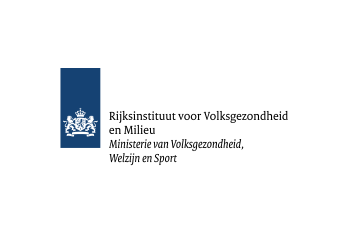There are many ongoing studies on people with HIV. Research on how the virus behaves, on new medication, on cures, on mental health, on stigma, and so on. You will probably be asked regularly to participate in research. What are the reasons to participate or not participate in research?
In brief:
- There are many ongoing studies on people with HIV.
- It’s always up to you whether you want to participate.
- Get all the relevant information before agreeing to participate.
- Check how the results of the research will be used.
Research is important
Research is there to improve HIV care. For example: to develop new medication, or to map out mental health. You could participate in research for everyone’s benefit, to increase knowledge about HIV. You could also participate because you think you would benefit personally from the research: e.g. research into injections if you no longer want to take pills. But only participate if you feel comfortable doing it. You are never obliged to participate in a study.
Medical scientific research
Medical scientific research consists of the preclinical and clinical phases. The purpose of preclinical research is to gain knowledge to develop new treatment methods to improve HIV care. The purpose of clinical research is to increase knowledge and to evaluate effects of new and existing therapies for people with HIV.
If you are suitable for medical research, your doctor might approach you, but if you are interested in participating in a research study you could also ask your doctor about this yourself. Medical research can be intense. Sometimes you have to donate tissue, or have a lot of blood tests done.
Developing new HIV medication can take several years, even several decades. The development of a drug consists of the following phases:
(Pre)clinical and clinical phase
In the preclinical phase, a potential drug is developed and then tested on animals. The main focus is on toxicity (poisonousness). Based on various tests, predictions are made on how the drug would work in the human body. If a new active substance has been examined in the preclinical phase and found to be safe, research in humans is started. These are the phase I, II and III studies.
Psycho-social scientific research
Psycho-social scientific research is often conducted on a smaller scale than medical scientific research. The purpose of psycho-social research is to gain more insight into how people with HIV function psychologically and socially. Calls for participants in research into subjects like mental health and stigma are often placed online. If you get asked to participate in research, look carefully at who the sender is. Is it a well-known organisation (e.g. a hospital or a community-based organisation)? And if so, does it say what will be done with the results? Take the time to find out what is being asked of you, and whether anything will be done with the results.
Polls
From time to time, surveys are also carried out on people with HIV. These are usually short questionnaires that can be found on the internet. They usually ask people about a number of subjects. The results are often used to give an overview of the current state of affairs: e.g. how people with HIV rate their health. This research is not scientific.
Blood donation
You may be asked at the hospital if you are willing to donate extra tubes of blood when you go for the blood tests. This blood is then used for research: e.g. to find out how immune cells work. They explain what you are donating for, and you need to give written permission. You can sometimes give permission to be called up again. You donate blood anonymously, so you won't hear about what was found specifically in your blood. This is because the researchers don't know which blood belonged to whom. When you donate extra blood, you are not participating in a long-term study: you have no further obligations.
Stichting Hiv Monitoring
Almost everyone in the Netherlands with HIV participates in a cohort study. This means that people are monitored for long periods. You won't notice this yourself, but Stichting Hiv Monitoring (SHM) compiles data from all the people in the Netherlands with HIV. People with HIV give permission to do this, usually during the first clinical appointment. The data in the database is anonymous. In a study, your personal data will never be linked to your name.
Among other things, the database records how many people with HIV receive care, how many have an undetectable viral load, and what other diseases people with HIV have. Any research done with the data in the database can increase understanding of HIV. In particular, the understanding of lifelong HIV treatment is being studied extensively. The data is also used to adapt guidelines and to improve HIV care in the Netherlands. Read more here about Stichting Hiv Monitoring.
Not sure if you want to participate?
Participation is always voluntary. Would you like to participate in scientific research? Take your time to read up on the research, and ask questions if you have any. Only participate if you feel comfortable with it, and if it's clear that something will be done with the results of the study.
If you are unsure about participating and would like to discuss it with someone, you could contact the Servicepunt (Service Desk) at the Hiv Vereniging (the Dutch HIV Association): call 020 - 689 25 77 – Mondays, Tuesdays and Thursdays, from 14.00 to 22.00.









